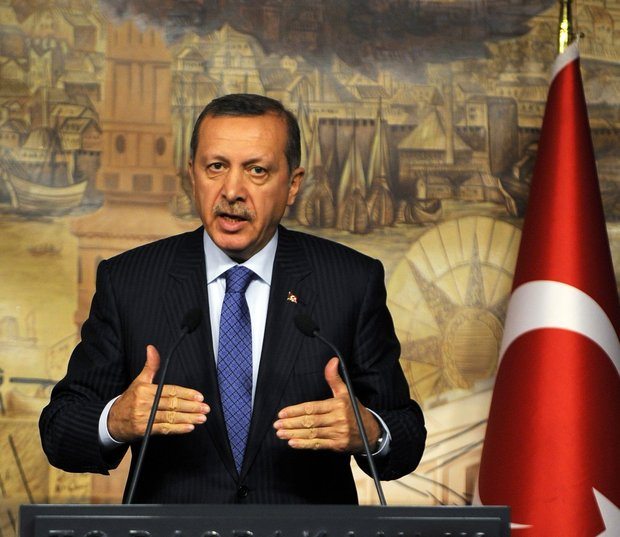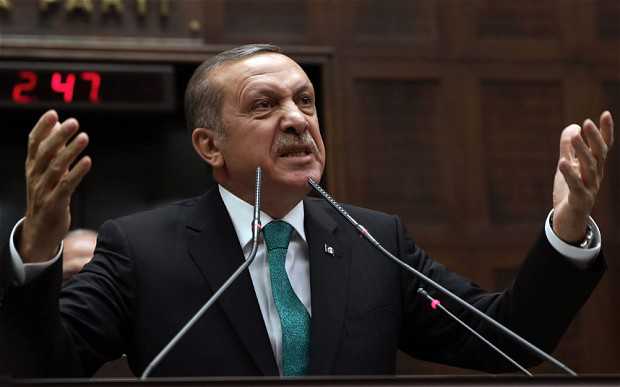Satan’s Army, Gustav Doré
So numberless were those bad angels
Hovering on wing under the cope of hell
John Milton, Paradise Lost
LAUGHING MY HEAD OFF
22 August 2014
“I suppose the pain of parting will be red and loud.”
Vladimir Nabokov, Invitation to a Beheading
Yesterday President Obama announced that “the entire world is appalled” by the beheading of an American photojournalist. Marie Harf, a spokesperson for the US State Department stressed that nothing whatsoever will change and that the bombings will continue. “We don’t make concessions to terrorists,” she said.
Exceptional America! Please excuse me, dear reader. I’ll be back in a few minutes——————————————————————————————————————————————————————————————————————————————————————————————————————————————————————————————————————————————————————————Okay, I’m back. Thank you for your patience. I feel much worse.
“I believe in American exceptionalism with every fiber of my being,” said the president of the United States a few months ago at West Point. And for the past five minutes I have been laughing my head off at the Nobel Peace Prize winner’s “exceptional America.”
And Ms. Harf’s words really cracked me up. Let me describe my out-of-head experience:
I was sitting on a chair in the kitchen. Early morning, still dark. Now, all the mornings and days are dark. I think about how Obama and Clinton and Kerry and Erdoğan and Davutoğlu cooked up this outrageous crime against humanity to destroy Libya and Syria. They would use Turkey as a staging area for their proxy army, their Satanic army of well-paid mercenaries. What geniuses! Exceptional America did the same thing decades ago in Afghanistan funding Bin Laden’s mujahideen that later became al-Qaeda. Wow! How smart these dopes are! Very humorous. And they all wear expensive suits and ride in black, shiny, sad limousines. And again they drive over the terror cliff, this time with the arrogant assistance of the treacherous Turkish government. They say you can’t tell the same joke twice. But not America, not “exceptional” America. Do you remember the song lyric? But where are the clowns?/Quick, send in the clowns/ Don’t bother, they’re here. If you remember, you get the idea.
And these clowns had their military and intelligence and diplomatic agents assemble in Adana, Turkey about three years ago. Everything was secret, except everyone with half a brain knew what was going on, except the American press and the lame, obedient Turkish media. Oh, Petraeus, the boy wonder, was involved, too. So was Fidan, the chief Turk spook. It’s funny how time flies when you are having fun, isn’t it? Ha! Ha! Ha! They had donors come too. Rich, treacherous folks like the obese Saudis and the tennis-tournament-sponsoring-but-non-tennis playing Qataris. They have money, oil money, and lots of it, and not much else, except duplicity.
They also met in Istanbul. At fancy hotels. What better conditions to assemble Satan’s army? But you knew this, didn’t you? No? You mean the New York Times didn’t cover the story? Aydınlık newspaper broke the story in Turkey. Too bad the American correspondents missed it. Not that it really mattered. But how sad. How hilariously tragic. I am now laughing out loud at the empty remarks of Ms. Harf. Marie Harf, spokesperson! Exceptional America certainly does not make concessions to terrorists. How silly of me to think so. Instead of mere concessions, it sponsors, feeds, arms, outfits and pays outrageous salaries to them. Ha, ha, ha, I keep laughing, catching the ironic humor in Harf’s weasel words.
Now I am positively giddy thinking about Turkey. What a funny country! How can two Turkish war criminals become America’s favorite foreign friends. So well did they destroy their own country that America suggested that they both be promoted. And they were! Wow, how funny is that? One, the destroyer of Gezi Park youth, is president, the other, the “zero-problems-with-neighbors” genius, will be prime minister. This genius who wears a perpetual smirk beneath his scruffy moustache wrote a book on foreign policy called Strategic Depth. The destruction that is Turkish foreign policy resides in a deep, deep strategic cesspool. For that, and other miscues, mishaps and misdeeds, he will lead the nation. The ever consistent Erdoğan’s first act as president-elect was to knowingly violate the Turkish constitution. Since the position of the Turkish president is supposed to be above politics—HA! HA! HA!—Erdoğan must immediately resign as prime minister and as head of his political party. He refuses to do this. Why? Because he would lose his immunity from prosecution for a few days. And in case you haven’t heard, Erdoğan has a problem in this regard. But surely the political opposition, the “bread boys,” are pressuring him. Well, ha! ha! ha! not exactly.
Even funnier is how just about everyone in Turkey who can help America is paid off to make it happen. How else to explain this amazing comedy of errors and stupidities. I mean, bribes, big bribes. Big, CIA level unaccountable bribes. How else can one explain a media that only prints pro-government propaganda? Why else would a media fire any and all columnists who dissent? How else can one explain a political opposition that helps their opposition, the opposition that they are supposed to oppose? What a weird sentence that was…but not as weird as the political opposition leaders Kemal Kılıçdaroğlu and Devlet Bahçeli. These two should have a comedy act on one of the brainless Turkish TV channels. Slapstick would be appropriate—they can beat each other with loaves of bread reminding the electorate of their pathetically inept choice of a presidential candidate.
Just thinking of these two walking laugh-riots makes what’s left of my brain spin. In fact my head is now spinning faster and faster and faster and—whoops!— there it goes, bouncing along the floor—tak! tak! tak!— into the corner by the refrigerator. My left eye sees the wall, the other, the dark space between the floor and the front of the refrigerator. The rest of myself remains on the chair. How humorous this is. I laugh and blow dust. I sneeze and blink my eyes so rapidly that my head rolls back an inch and I can see myself out of the corner of my right eye. There I sit, headless, my arms crossed, stupidly waiting. My head by the refrigerator thinks how it must be for the hundreds that have been beheaded by the evil breed of the American scheme, the devilish Free Libya Army, changing to the diabolical Free Syrian Army, changing now to the fiends of ISID.
I am now hysterical. Like me, even babies, mostly Christian babies, have also been beheaded. But I did it willingly through laughter. They had it done by America and Turkey, by the so-called “leaders” and by their ignoramus makers of foreign policy. How humorous was Ignoramus Clinton to revel in the barbarous disembowelment and anal rape of MuammarKhadafy? “We came, we saw, he died…Ha! Ha! Ha!” chuckled the ignoramus American Secretary of State. Is Kerry, and his litany of lies about Syria, any less amusing? Any less of an ignoramus clown? Ha! Ha! Ha! No. He is just another monstrously “exceptional” American. And speaking of monsters…
How does the president of the United States explain to the American taxpayers that their dollars are financing the beheading of Christian babies…and so much more? The president announced that “the entire world” is appalled by the beheading of an American journalist. But is he, Obama, appalled? If he is, how does he explain that he has assembled Satan’s Army? And why does it take a bestial slaughtering of an innocent journalist to get Obama’s attention to the horror that his policies have created? The world knows this. There are no more cover stories. He has made a devil’s bargain with the “strategic depth” incompetent ignoramuses in Turkey. This is the horrible truth. It is a horrible mistake. Now what?
As for my own beheading through hysterical laughter? My head continues to gather dust by the refrigerator. I can still see my other part on the sitting on the chair like two sacks of onions. Can I stop laughing long enough at this darkest of all tragicomedies to pull myself together? Is it really worth the effort?
James (Cem) Ryan
Istanbul
22 August 2014




